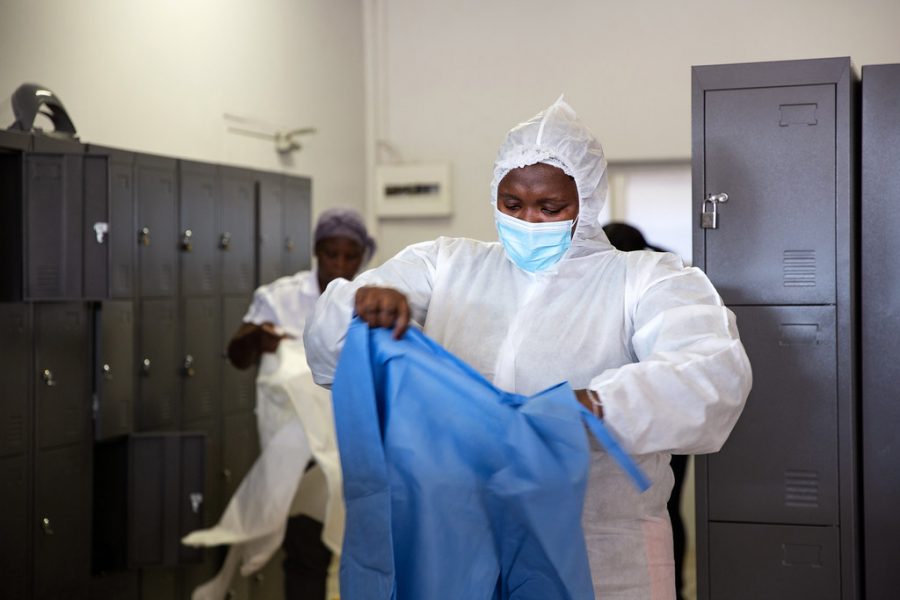South African Variant’s Effect on Current Covid-19 Vaccines
Studies are mixed on the efficacy of existing vaccines against new mutations
Nurse Nosipho Khanyile prepares to enter the “Red zone” at the special COVID-19 Field Hospital in Nasrec, Johannesburg. (James Oatway)
A new mutation of Covid-19 known as E484K has been found in both South Africa and Brazil, and experts are currently researching whether the antibodies produced by existing vaccines will work on the new variant. Scientists believe the current vaccines are useful against this variant but it will be necessary to continue to modify them and provide booster shots.
These new strains are more contagious, spreading more easily even with masks and social distancing in place. Despite this, professionals believe that the variant that was originally found in the United Kingdom will be the majority of cases in a month.
Andrew Joseph, a general assignment reporter for Stat News, says it’s likely the South African variant is here in Colorado.
“Scientists believe there is a high chance the more infectious South African variant is already spreading across the continent.”
Jesse Bloom, an evolutionary virologist at Fred Hutchinson Cancer Research Center believes the efficiency of the vaccine will not be seriously affected, at least for now.
“The mutation only reduced neutralizing activity, and didn’t eliminate it,” Bloom said. “Current vaccines, meanwhile, have shown they can generate strong immune responses…and will be useful for quite a while.”
The vaccine still addresses parts of the virus that have not changed.
“The vaccines authorized so far and those in development produce what’s called a polyclonal response, generating numerous antibodies that hone in on different parts of the virus,” Stat News reporter, Andrew Joseph, explains.
Vaccine makers are already working to change some parts of their designs so that the new variant can be recognized by the antibodies.
Professor Glenda Gray, president of the South African Medical Research Council (SAMRC) urges attention to re-infection rates.
“We do need to monitor this and evaluate whether it has an impact on vaccine efficacy. We need to evaluate what role it plays in re-infection,” Gray says.
Despite all the changes and difficulties that will come with E484K, professionals believe that our immune systems will be able to pull through, at least until we find a new way to battle this mutation.
“I’m quite optimistic that even with these mutations, immunity is not going to suddenly fail on us,” Bloom said. ‘It might be gradually eroded, but it’s not going to fail on us, at least in the short term.”


